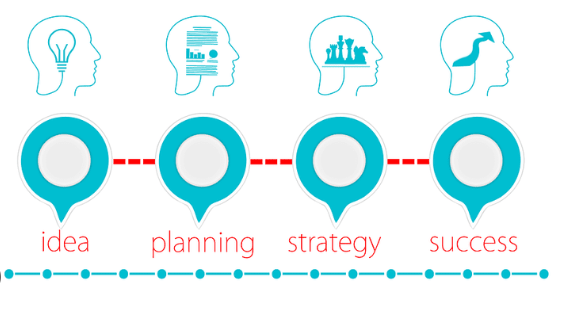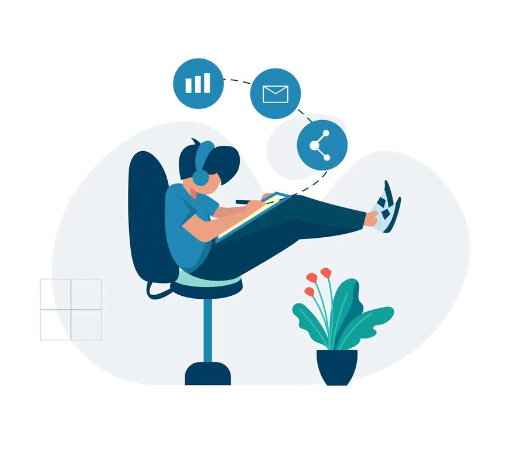Should you start as a part-time freelancer or quitting your job today?
All beginnings are difficult and things are even more challenging when you have to make a massive transition.
If you’re about to start your freelance career, you have two choices – devoting yourself to freelancing or turning it in a part-time gig while keeping your day job.
Both approaches have their merits, which is why you have to consider the pros and the cons of the situation carefully.
Some people like to go all in – an approach that allows them to invest their heart and soul in a freelance business.
Others like having the security blanket of an actual job until their freelance gigs start paying off.
You can make both of these scenarios work for you, if you have a long-term plan and a very specific vision of the end goal in place.
The Pros and Cons of Part-Time Freelancing vs. Quitting Your Day Job
Before looking at more important specifics, let’s examine the advantages of quitting your day job or being a part-time freelancer.
Here are the pros and cons of being a part-time freelancer:
| Pros | Cons |
| You have steady income while things pick off | Not enough time to dedicate to freelancing |
| There’s no pressure to accumulate a huge client list right off the bat | A higher risk of burnout because you’re attempting to do too much at once |
| Opportunities to invest in some marketing | You have to be careful with paying taxes |
| A more comfortable timeframe to make your new business successful | Establishing a successful freelance business may take longer |
| You can always go back to full-time employment if things don’t work out with a freelance career | Quality of life issues – you’ll probably have no time for social activities |
Becoming a full-time freelancer right off the bat gives you the following opportunities and risks:
| Pros | Cons |
| No distractions, just a focus on your freelance career | You’ll have some money worries in the beginning |
| Simplicity with taxation and establishment of a business entity | You’re entirely in charge, meaning you’re fully responsible for your career |
| A potentially shorter timeframe to successful business establishment | There will be periods with inconsistent work |
| A chance to take on more new projects | You’ll cut off the social contacts that came with your previous job |
| A chance to be your own boss 100% of the time | Work-life balance can still be a struggle as you’d like to take on many new projects |
So, to sum things up, there are a few essential elements that will help you determine the path that’s right for you. Money, time and your risk-taking ability are most important.
If you’d like to enjoy a slower transition, being a part-time freelancer will help you ease into your new professional reality.
Those who want to commit themselves entirely to the new project and avoid the risk of multitasking / burnout will probably benefit more from quitting their day job to become full-time freelancers.
When Is the Right Time to Quit Your Day Job?
Many people interested in starting a freelance career will first take on a few projects as a side gig.
That’s a good way to assess the possibilities and determine whether working solo is something you’re going to enjoy.
Eventually, however, the workload can get to be a bit too much.
So, when is the right moment to quit your day job and fully commit yourself to the freelance career?
There isn’t one universally applicable answer.
Some people are so pissed with the nine to five routine that they commence the freelance journey without pursuing any security in advance.
Others like to plan and have at least some degree of security before jumping all in.
The truth of the matter is that the time’s never going to be ideal (unless you’re really, really tired of your day job).
Chances are that you’ll always find reasons to postpone the decision a few more months.
Quitting your job can be really scary, especially if you’ve dedicated numerous years to career establishment.
While becoming a freelancer appeals to more people, it’s still a scary journey to embark on.
If you’ve never been your own boss before, you may feel scared about the responsibilities and the uncertainty.
Still, making a leap can give you a very good idea about the prospects and if you can make them work.
After all, what’s the worst thing that could happen?
You may have to start looking for a new job in the future. Finding security and freedom are definitely worth the risk.
And if you’re serious about the freelance opportunity, chances are that you’ll make it work.
A Few Things to Do Before Quitting Your Job

You’ve decided to leave your day job and become a full-time freelancer.
That’s great but don’t be impulsive about shouting “I quit” in the middle of the office movie-style.
Getting a few things done first is a better way to approach the situation and make sure your new solo career is going to be a successful one.
Start with putting together a business plan.
What freelance field are you going to work in?
How are you going to differentiate in the competition?
Do you need to invest in any equipment or skill acquisition in order to boost your competitiveness?
How about marketing? Where will you find your clients?
These are important questions to address before moving on to the next chapter in your life.
If you need to take a course and acquire some niche skills, you can do that while still employed.
It’s also a good idea to talk to an accountant or a bookkeeper in advance.
As a freelancer, you’ll be responsible for registering a legal entity and paying taxes in the end of the fiscal year.
Don’t underestimate the importance and heft of administrative tasks.
If you do, chances are that you’ll have to dedicate too much time to bureaucratic stuff when you leave your job.
Once you have a good vision in place, make sure you also possess enough money to bring that concept to reality.
Many digital freelance businesses are quite inexpensive to start.
Still, you’ll need some money for marketing, participation in professional events, courses and workshops.
You’ll need to invest in some technology, equipment or inventory. Come up with a calculation of the sum you’ll require over the first year of your freelance career.
If you haven’t managed to save this much yet, the time is right to start putting some cash aside.
Have a Backup Plan in Place for Quitting Your Day Job

In order to enjoy security after leaving your job, you’ll need to have a backup plan in place.
Coming up with a plan B in case things go south will give you the confidence needed to move on from being somebody else’s employee.
A backup plan may involve setting up an alternative income source.
You could invest in something and use that opportunity to get some financial security until freelancing picks off.
You could consider an opportunity that will generate you some passive income (if you’re a photographer, for example, you can have your pictures featured in a paid image library that will produce some income each time a picture gets downloaded).
Understand the fact that you don’t have to go back to your job just because freelancing takes time to establish as a solid career path.
There are other ways to fulfill your professional destiny.
As long as you have a backup in place, you can continue pursuing your professional passion in any way deemed appropriate.
Have Realistic Expectations
Here’s one final tip and it’s probably the most important one of them all.
Some people quit their day job and have very naïve expectations about freelancing.
Being a freelancer does give you a lot of freedom, variety and chances to grow professionally.
At the same time, it’s incredibly difficult. There is stiff global competition. There are clients who want to pay very little and still get exceptional quality.
You’ll face these problems and then some more when making your first steps in the world of freelance.
Carving your niche takes time, especially if there are lots of other professionals with a similar skillset.
You’ll either need to be patient or you’ll have to find a more specialized niche.
Most people don’t become an overnight success in the freelance world.
And that’s normal. If you’re hoping for fast results and effortless monetization, you’ll probably need to seek another opportunity.
A freelance career takes time, lots of work and consistency.
There will be dry periods during which you don’t earn a lot.
There will be clients that drop you out of nowhere.
You should be prepared to face these challenges and move on.
If you don’t have realistic expectations, you’ll get disappointed easily and you’ll probably regret quitting your day job.
So, use the time to do your research and get into the fine details of being a freelancer.
Prepare yourself and get a good idea about the challenges you’re going to face.
Coming up with a realistic timeframe for the establishment of a freelance career is also going to help, keeping you from giving up when the going gets tough.








Comments 1
Pingback: Becoming a Freelancer with No Experience: How to Get Started - Taspin.com